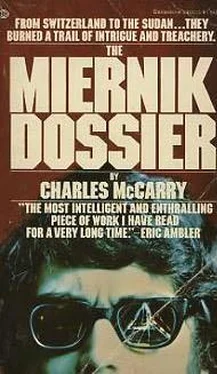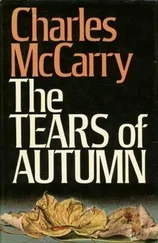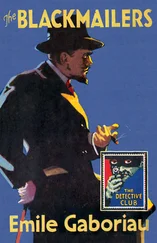Paul still had his compass and a pocketknife. Everything else had been lost. We walked along the banks of the wadi and found some of our canned fruit half-buried in the sand. We ate a can of peaches and Paul bundled up the rest in his shirt so we could carry them. He said there was no point in wasting our energy looking for the Land Rover as it would not run. There was no sign of Tadeusz. “We’ll come back for him,” Paul told me. “We won’t leave him here.” I wondered why he insisted on this. Of course I realize now he was afraid I would get hysterical. Perhaps I was hysterical. If I was, it had nothing to do with my brother-he was beyond help. As for his body, I didn’t care what happened to it. The person was gone from it. My hysteria had to do with Paul. I was mad with joy that he was alive like me.
Paul got out his compass and decided we should walk eastward over the hills. The road we wanted was fifteen or twenty kilometers in that direction. We began to climb. When we got to the top of the first hill we heard the helicopter. Paul dumped the cans out of his shirt and waved it. The helicopter flew right by, sounding like a gun firing. Then it turned and landed a few feet away.
Kalash shot out of the door and scrambled toward us with his arms hanging down and the rotor blades flashing a few inches above his head. He gave me hardly a glance, but threw his arms around Paul and lifted him off the ground. He stood there with Paul dangling in his embrace for quite a long time. Nigel meanwhile had come up to me. He was carrying a light coat and for some reason he draped it over my shoulders. It was 120 degrees in the sun. “‘Your brother?” he asked. It was the first time anyone but Paul had mentioned Tadeusz since we found him. I meant to give Nigel a calm reply. When I opened my mouth, nothing came out but a series of shrieks. Nigel’s face, always before so cold, twisted in pain and he put his arms around me. He held me upright, muttering into my hair and patting my back, until I got control of myself. They put me into the helicopter. Paul joined me. The pilot flew us to the palace. Kalash and Nigel waited where they had found us-the machine could carry only four people.
I learned later that Kalash and Nigel found Tadeusz. They brought his body back, tied to the landing gear. I never saw it. By the time I knew he had been found, they had sealed him up in a coffin. I never saw any part of his dead body except the face. Perhaps it’s just as well.
Q. But you did learn what had happened to him?
A. That man Qasim, the policeman, told me something about it. Apparently a couple of bandits seized him while he was poking around in the ruins. Qasim couldn’t understand why they had killed him instead of holding him for ransom. He kept asking me if Tadeusz was carrying a large sum of money. I didn’t know. I didn’t think so. I had all the money, in my rucksack. Nigel found it, as you know, and gave it back. The rucksack contained Tadeusz’s briefcase when I lost it, but the briefcase was gone when I got it back. All the money was there- over ten thousand dollars. But the briefcase was gone. Paul said I may not have put it into the rucksack after all, but I remember quite clearly. It doesn’t matter. Nothing of value was lost except my brother’s diary. I don’t think I would have read it in any event. What could his diary tell me that I need to know?
Q. How did you interpret Ilona Bentley’s reaction to your brother’s death?
A. She was distressed. Ilona came to my room almost as soon as I returned to the palace. She kissed me, which I didn’t particularly like. She said nothing for a long time. Actually she just stood there trembling from head to foot. She had to sit down in order to get hold of herself. Ilona told me she had loved Tadeusz. “I realize you won’t believe me,” she said, “but I did rather love your brother. You and I are different sorts of women, Zofia. I am able to love a great many people all at the same time. Tadeusz was loved by me.” I expect she was telling the truth. What she said was a comfort to me in a queer way. She had been generous with Tadeusz, sleeping with him, whatever her intentions and whatever the results. All that was over. I found myself sympathizing with Ilona for the first time.
Later on, after we had taken Tadeusz to Khartoum, Ilona came along to the funeral. They all did. They were all absolute atheists, except for Kalash, and he was hardly a good Catholic. But they sat through the mass with me, all very correct. I don’t mean that to sound contemptuous-probably their thoughts of my brother did him as much good as the priest’s ritual and my prayers. We had to have him cremated, of course. This was done after the requiem mass. Theoretically the Catholic dead are not cremated. But I didn’t want to bury him in that damned desert. I wanted to take him back to Europe with me. Nigel and Ilona arranged all that. I’m sure it was very difficult, but they took care of everything.
Ilona turned up at the plane, when we left with Tadeusz’s ashes, with a bouquet of flowers. I don’t know where she got them in that climate-they were roses. She asked if I minded her having the box containing the urn opened, so she could put the flowers inside. I agreed, and she knelt on the tarmac in the beating sun by the open crate, arranging the roses around the ashes. She was weeping. It was kind of her, I thought. There was no question at all that she was tremendously sorry about Tadeusz. No doubt she always had been.
86. FROM THE FILES OF CHIEF INSPECTOR ALY QASIM.
Of the sixty-three terrorists who were engaged by troops of the Parachute Regiment in the main camp of the so-called Anointed Liberation Front on the Wadi Magrur at 0640 hours on 17th July, only four survived. Of these, two were seriously wounded, and despite conscientious treatment by army medical staff, both died before I was able to complete my interviews with them. Of the two remaining prisoners, one was a low-ranking illiterate who was unable to supply any useful information. The other, Fadl Baballah, had been second-incommand of the ALF under a certain Qemal, who unfortunately was killed in the morning’s action.
Baballah stated that he had joined the ALF in the belief that it intended to serve Islam. He was recruited by the late Ahmed, who was a boyhood friend. Ahmed told him that the USSR was a country governed by devout Muslims who wished to restore the purity of the faith. When Ahmed was executed on orders from the Russians, Baballah was disillusioned. He no longer believed that the Russians were friends of Islam, and he desired revenge for the death of his friend. He decided to kill Qemal, and on 12th or 13th July threatened him with a pistol.
What follows is a stenographic transcript of Baballah’s description of this incident and certain of the results that flowed from it:
“The Russian radio told Qemal to kill Ahmed. He did so without hesitation and without giving Ahmed a trial. Always before when a comrade made a mistake, he was judged by a tribunal of the freedom fighters. They would decide his guilt and prescribe his punishment. If it was death, the sentence was carried out in a proper way by comrades of the condemned man. His error was explained to him before he died. But Qemal lured Ahmed into the desert and killed him by trickery. This was a terrible act. Soon all in the ALF knew about it. There was great anger. Comrades came to me and said, ‘Fadl, you must get rid of Qemal and take command of the movement. Qemal killed Ahmed out of ambition. The Russians cannot order the death of a comrade in that way. It is wrong.’
“Qemal was a clever man and very brave. However, I never trusted him. I never believed that his heart was with the cause, as Ahmed’s heart always was. I thought it best to kill Qemal exactly as he had killed Ahmed-go with him as a friend and shoot him. But when I tried to persuade Qemal to come with me one night, he refused. ‘Fadl, I know what you are thinking,’ he said. ‘I am thinking the same thing, that these Russians are no good. They betrayed us. You are angry because Ahmed is dead. How do you think I feel? It was I who killed my friend because the Russians told me to. I feel so badly I wish you would kill me, and if that is what you want to do I will turn my back now and let you shoot me.’ I said, ‘Very well, turn around, because I certainly intend to shoot you in the head.’
Читать дальше












